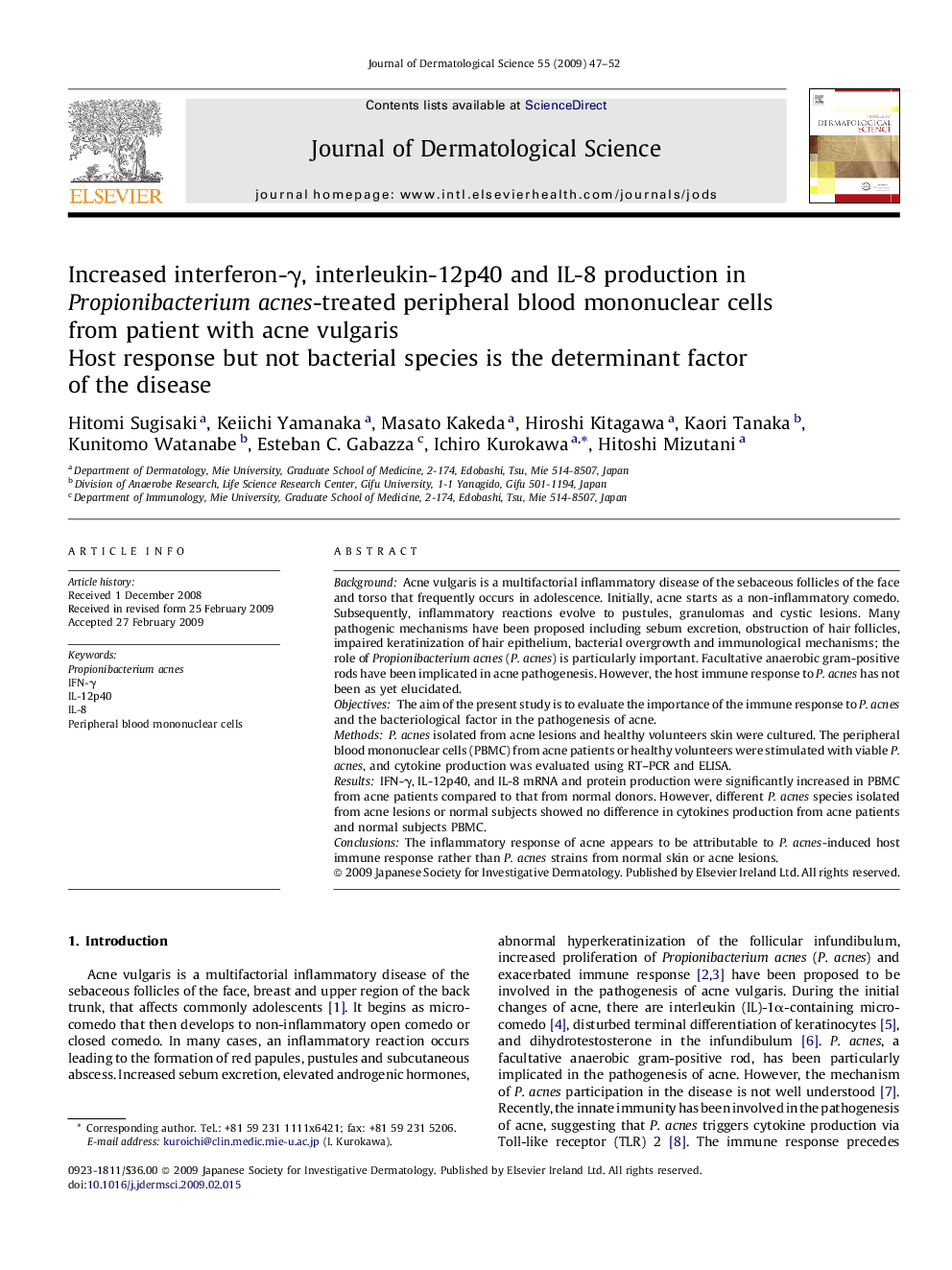| Article ID | Journal | Published Year | Pages | File Type |
|---|---|---|---|---|
| 3214034 | Journal of Dermatological Science | 2009 | 6 Pages |
BackgroundAcne vulgaris is a multifactorial inflammatory disease of the sebaceous follicles of the face and torso that frequently occurs in adolescence. Initially, acne starts as a non-inflammatory comedo. Subsequently, inflammatory reactions evolve to pustules, granulomas and cystic lesions. Many pathogenic mechanisms have been proposed including sebum excretion, obstruction of hair follicles, impaired keratinization of hair epithelium, bacterial overgrowth and immunological mechanisms; the role of Propionibacterium acnes (P. acnes) is particularly important. Facultative anaerobic gram-positive rods have been implicated in acne pathogenesis. However, the host immune response to P. acnes has not been as yet elucidated.ObjectivesThe aim of the present study is to evaluate the importance of the immune response to P. acnes and the bacteriological factor in the pathogenesis of acne.MethodsP. acnes isolated from acne lesions and healthy volunteers skin were cultured. The peripheral blood mononuclear cells (PBMC) from acne patients or healthy volunteers were stimulated with viable P. acnes, and cytokine production was evaluated using RT–PCR and ELISA.ResultsIFN-γ, IL-12p40, and IL-8 mRNA and protein production were significantly increased in PBMC from acne patients compared to that from normal donors. However, different P. acnes species isolated from acne lesions or normal subjects showed no difference in cytokines production from acne patients and normal subjects PBMC.ConclusionsThe inflammatory response of acne appears to be attributable to P. acnes-induced host immune response rather than P. acnes strains from normal skin or acne lesions.
